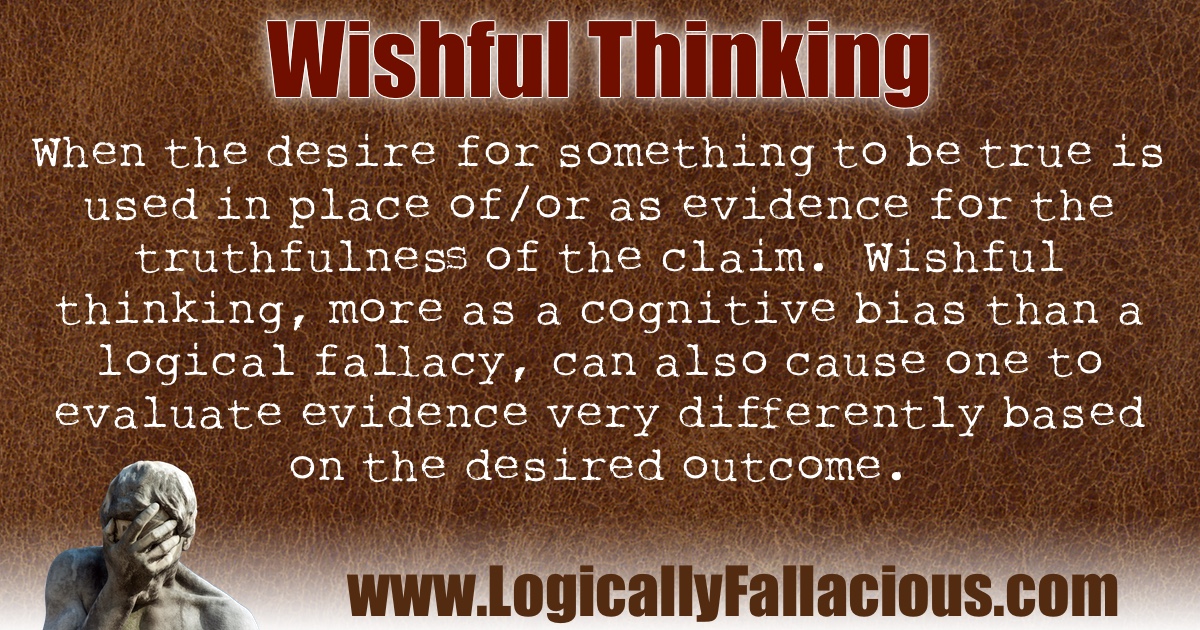Description: When the desire for something to be true is used in place of/or as evidence for the truthfulness of the claim. Wishful thinking, more as a cognitive bias than a logical fallacy, can also cause one to evaluate evidence very differently based on the desired outcome.
Logical Form:
I wish X were true.
Therefore, X is true.
Example #1:
I know in my heart of hearts that our home team will win the World Series.
Explanation: No, you don’t know that, and what the heck is your “heart of hearts” anyway? This is classic wishful thinking -- wanting the home team to win so pretending that it is/has to be true.
Example #2:
I believe that when we die, we are all given new, young, perfect bodies, and we spend eternity with those whom we love. I can’t imagine the point of life if it all just ends when we die!
Explanation: The fact that one doesn’t like the idea of simply not existing is not evidence for the belief. Besides, nobody seemed to mind the eternity they didn’t exist before they were born.
Exception: When wishful thinking is expressed as a hope, wish, or prayer and no belief is formed as a result, then it is not a fallacy because no direct or indirect argument is being made.
I really hope that I don’t have to spend my eternity with my Aunt Edna, who really loved me, but she drove me nuts with her constant jabbering.
Tip: Wishing for something to be true is a powerful technique when and only when, a) you have influence on what it is you want to be true and b) you take action to make it come true -- not just wish for it to be true.
